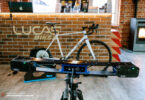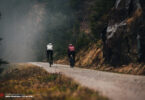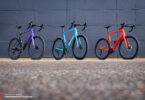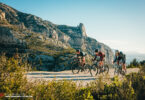Orbit360 isn’t like any other racing series. It’s not made just for ultra-cyclists and professional bikepackers but for anyone keen on gravel riding. At the main event, the Gravity Bike Festival, the community gets together to get to know each other and plunge into an exciting world. Read on to find out what it’s like!
“Sun, fun and sand.” While this might make you think of a hammock, Piña Colada and the smell of sunscreen, that’s not the case here. Instead, it’s ripped legs, a friendly racing atmosphere, a nice community, talks, know-how, relaxation, music – and yes – ultimately also hammocks and drinks. And sand, lots of sand. But here at the festival in Brandenburg, Germany, it’s the kind of sand that pushes many Orbiters to their limits. We found out what makes the Gravity Bike Festival so special, whether gravel is just a hype and whether you should heed the organiser’s call in 2023.
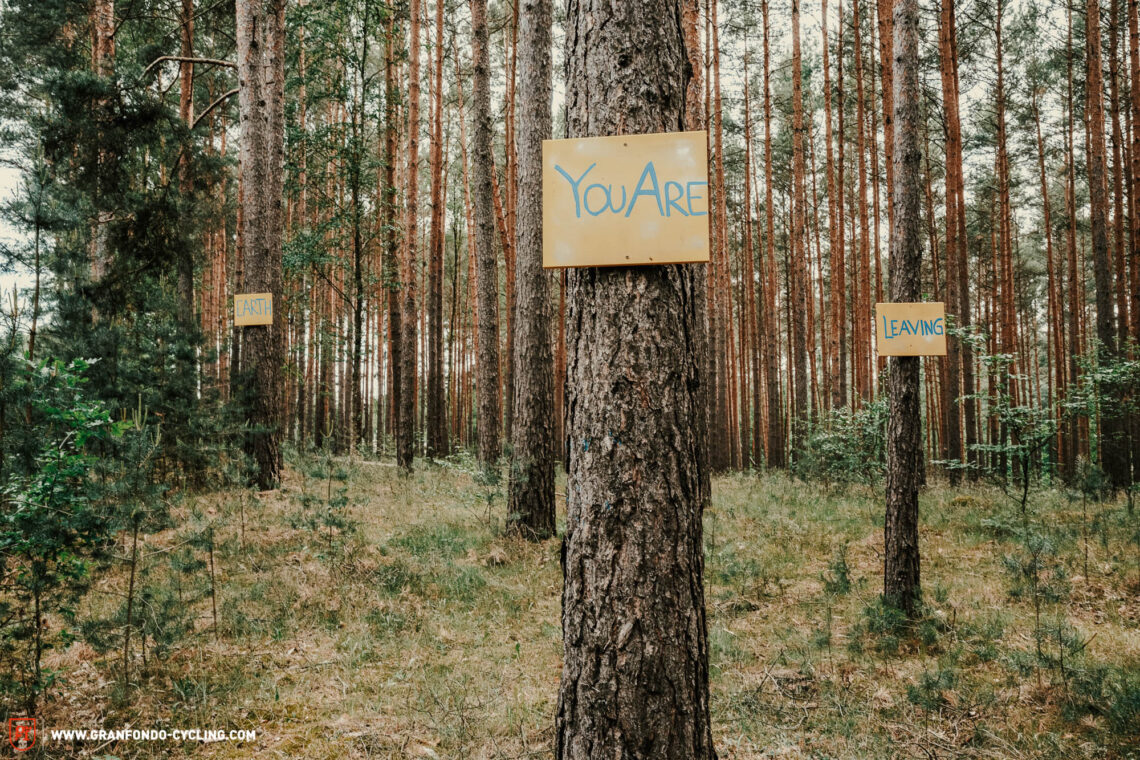
The Orbit360 series – What is it and could it be for you?
Orbiters. This is what you call cyclists who ride circular laps as the name suggests. But not just any laps. Orbit360 is a gravel series like no other: 18 gravel routes, at least one through each German state, each measuring between 125 km and 296 km in length. If you’re wondering about the elevation profile, there’s between 710 and 4,100 m of climbing on this year’s Orbit laps.
You can ride as many of these 18 routes as you like. However, for them to count, you must do so between 4 June and 14 August this year. Moreover, you can start at any point of a so-called Orbit, you just have to end there too. There are a few conditions such as riding clockwise, continuous timing, rating according to solo or peloton rides, etc. You’ll find the exact details in a race manual on the Orbit360 website (available here). In the meantime, the Orbits have been extended into Switzerland, about which you can also find out on the Orbit360 website.
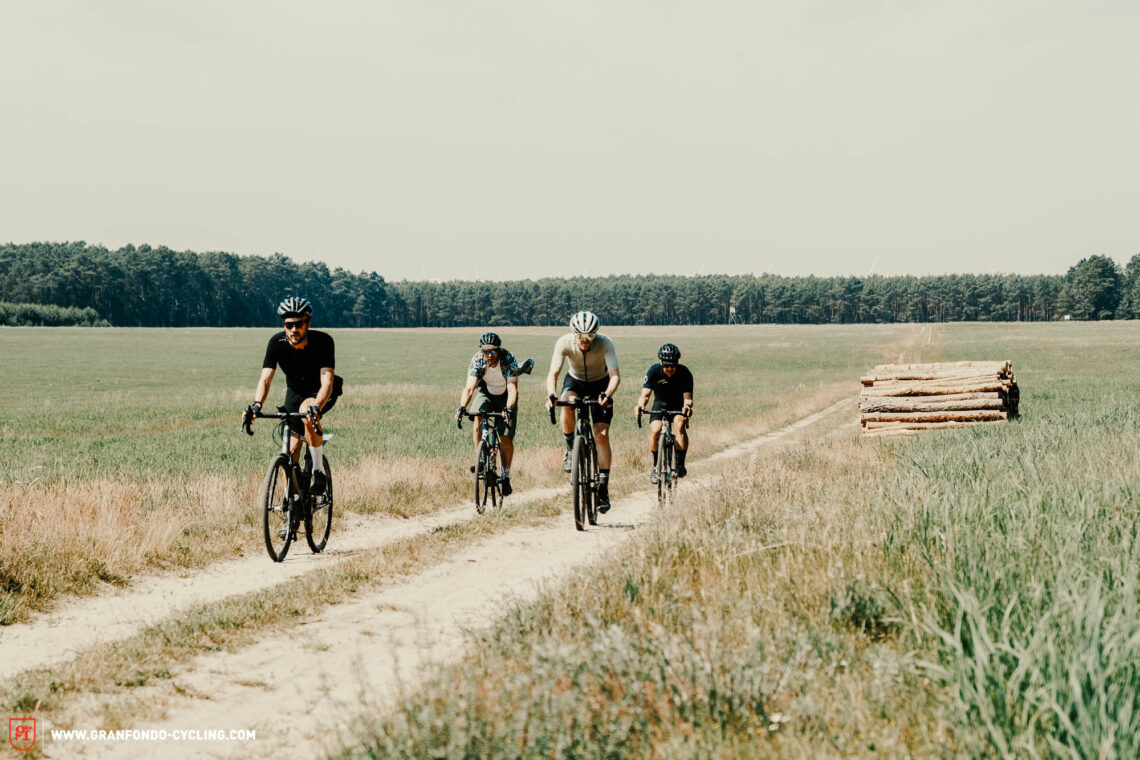
As you will see in the manual, there is a public ranking with its own scoring system. However, it’s not a real race. There’s little media fuss, no cash bonuses, and though there’s a strict points system, fierce competition is a foreign concept here. What counts is your passion for sport, having fun, and the adventure. And, of course, your personal drive.
The idea was born out of necessity when all bike events were cancelled during the first year of the pandemic and ultra-cyclists found themselves stuck at home: no Transcontinental Race, no Atlas Mountain Race, no Silk Mountain Race, no Three Peaks Bike Race…
Raphael Albrecht couldn’t stand it and simply created an independent gravel series: Orbit 360. It started with one route per state so that everyone could complete at least one Orbit, regardless of local travel restrictions. Now in its third year, the series has grown to 18 routes, all carefully scouted and made available via Komoot, one of the partners of the series. If you want it to sound more ultra: the routes result in a total distance of 3,500 km and 40,000 metres in altitude.
The nice thing is that you can choose the Orbit that suits you, it’s not exclusive to ultra-distance bikepackers. Instead, Orbit360 appeals to anyone who likes riding their bike and wants to ride unusual and unknown routes. Maybe you want to have a go at a longer ride. Yeah, why not?
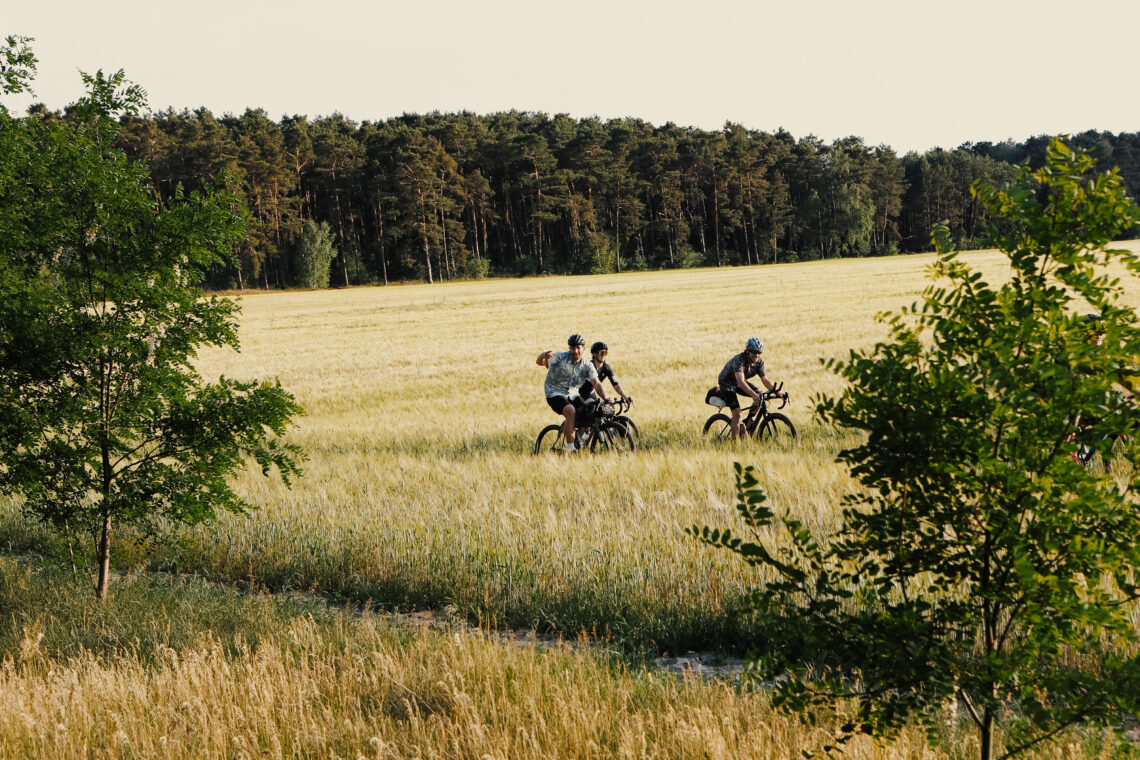
For the 3rd series, Raphael promises improved routes, a new and exciting points system, with Komoot and VOTEC giving away prizes on the points, and lots of adventure. The series kicks off with a festival, the second after 2020.
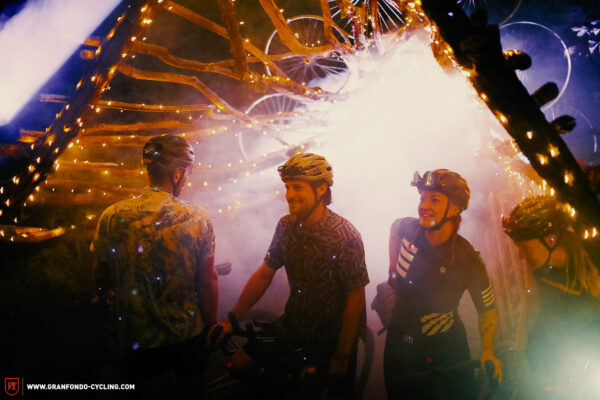
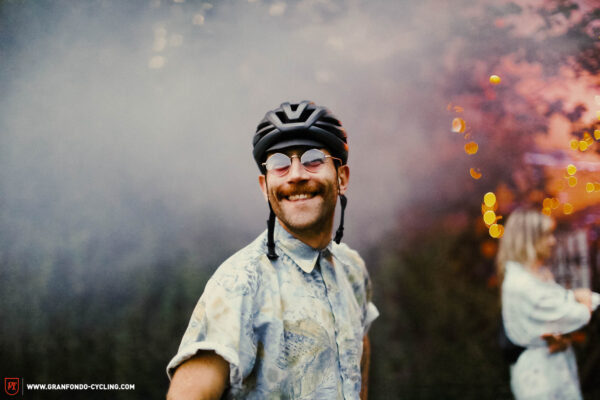
We were fortunate enough to be part of the festival and it was immediately clear as we arrived at the Schlaubetal Nature Park that this festival is all about coming together with like-minded people and cycling, but also about getting involved, and fun and entertainment. All in a casual atmosphere in a recreational park with a few rental bungalows and a sea of tents.
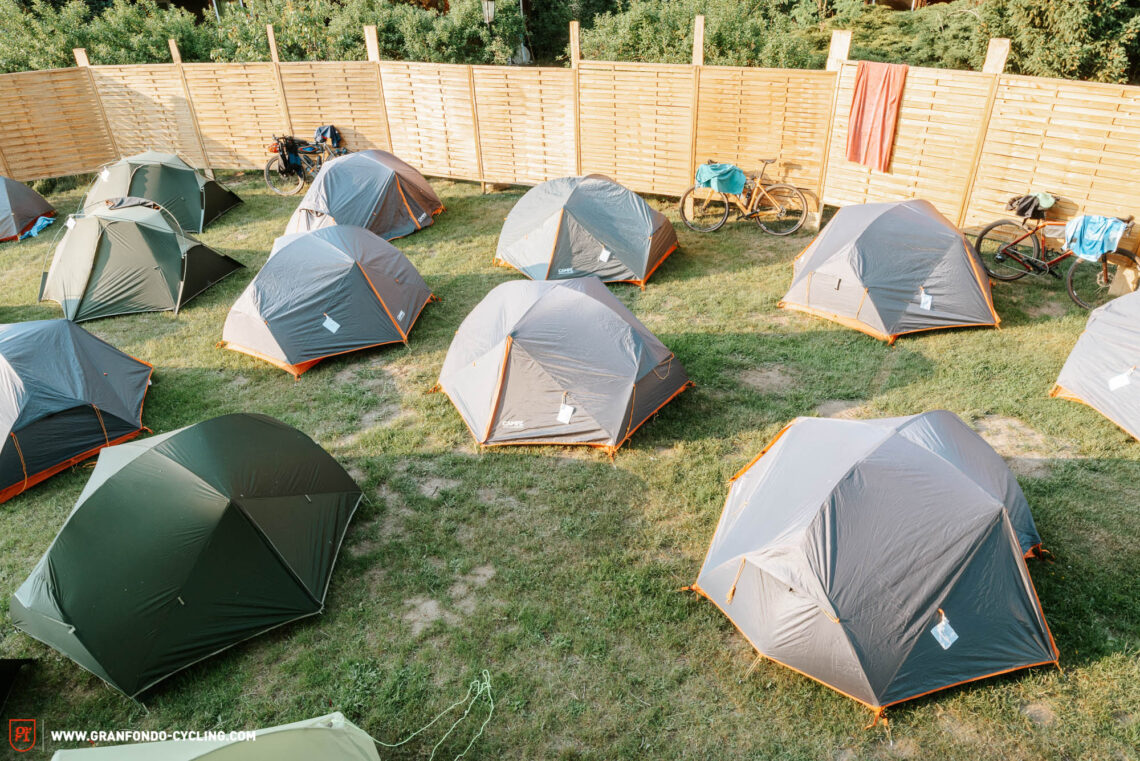
The event – An Orbit of its own
When you enter the festival grounds, you’ll notice the attention to detail: lounge furniture, hammocks and benches in the open-air “cafeteria” where people can hang out, enjoy the many delicacies or listen to one of the talks in a relaxed atmosphere. There’s an elaborately designed “steam cabin”, which is what they call the room for the DJs putting you in the festival mood, while CRAFT, one of the sponsors, serve – wait for it – craft beer at a small bar next door.
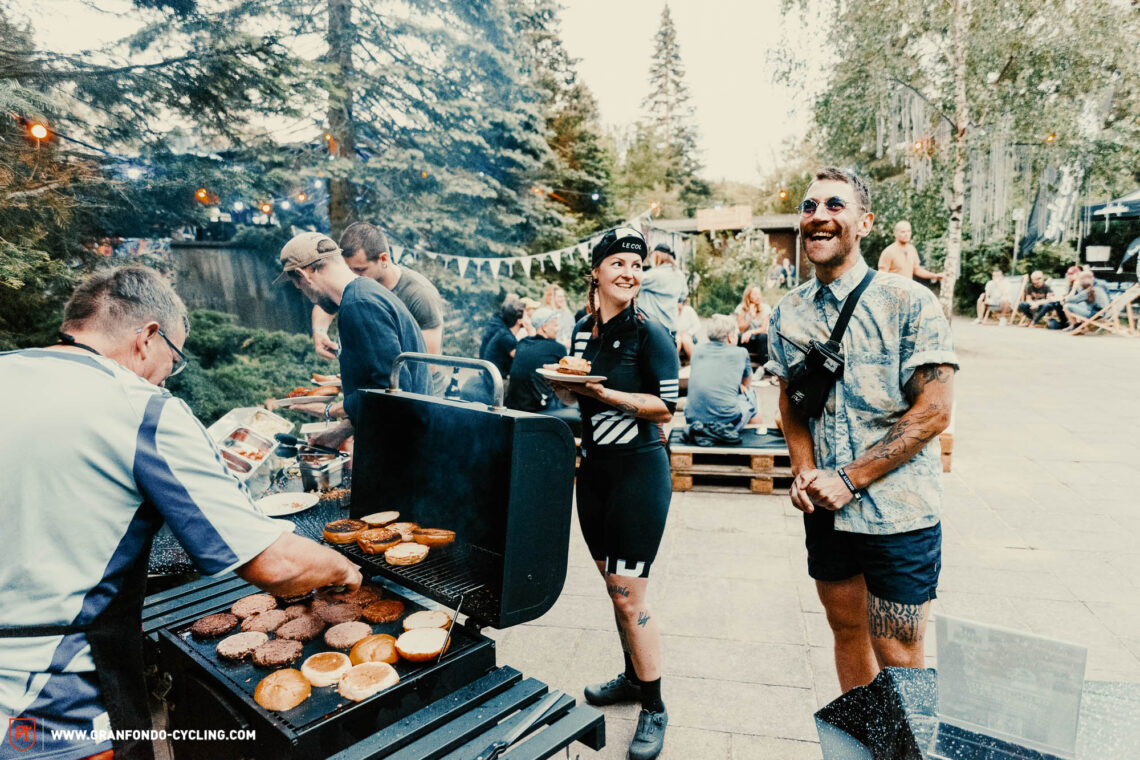
The open-air cafeteria also includes a coffee and cold drink bar, and the barbecue chef conjures up veggie burgers and potato wedges. And to the delight of all those who arrived by bikepacking: the tents are all already set up! So, all you’ve got to do is chuck in your mattress and sleeping bag and head to the bar for a couple of drinks. Cheers!
With the glass in hand, you can check out the program and see what else is on offer, and maybe strike up a conversation with one of the other attendees. It soon becomes clear: this is about more than just cycling. While it might sound easy, simply providing 18 routes, there’s hard work that goes into it. In addition to carefully scouting and checking the routes, it takes a lot of arithmetic and media work, as well as organisation and administration that all builds up on the days before the festival. We wanted to know how much time Raphael and his team put into the preparation. “Man, the last three months have been particularly intense”, explains the founder of the series. “We got support from a team of around 25 people made up of friends and family.” However, we learn that Raphael plans everything himself up to 2 days before the event, at which point the team lends a hand with setting up and dismantling as well as operational things during the festival. And, looking around, they’re obviously passionate about it. Meanwhile, Raphael is already looking towards the next season, planning sponsorship talks and scouting new routes: “we just love watching the community grow, sharing the fun of gravelling and exchanging ideas.” As you can see, you don’t have to fly halfway around the world to experience gravel.
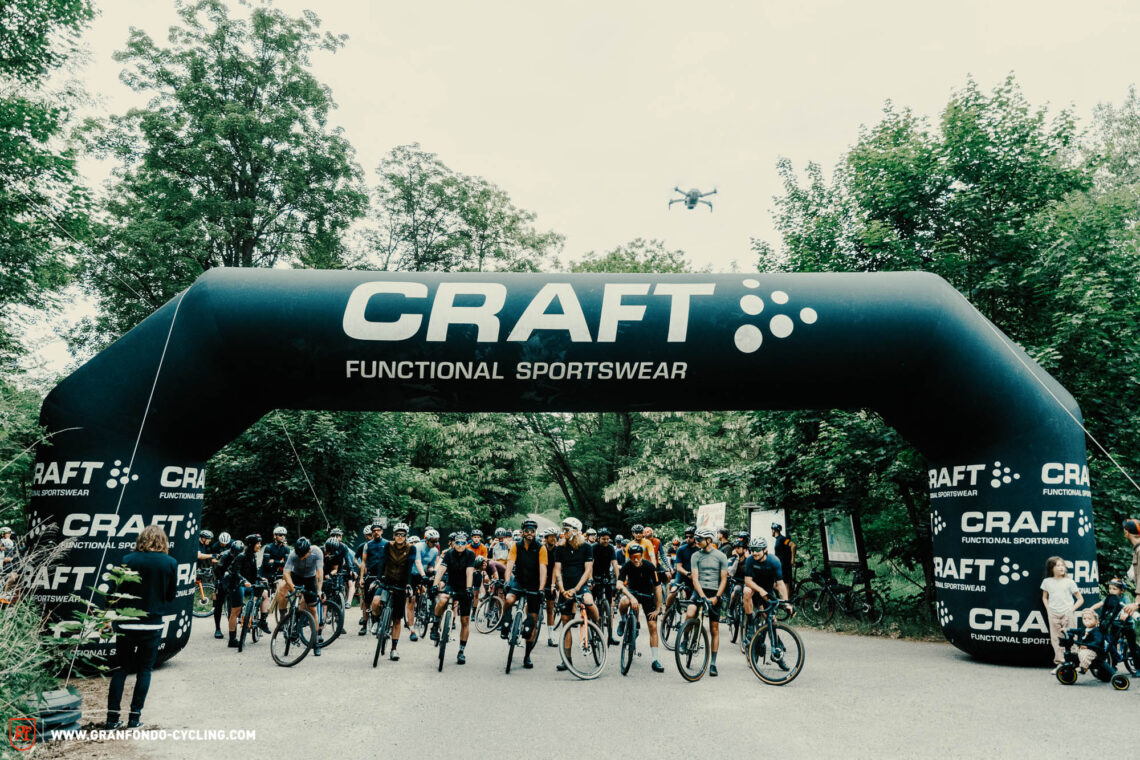
On the following day, it’s the official start of the 2022 series. At first glance, the first Orbit in Brandenburg looks comparatively smooth with 710 m of climbing over 126 km – after all, you still want to enjoy the rest of the festival weekend. It soon becomes clear what smooth means, watching the pros and ambitious privateers as they line up at the starting line, chatting casually before the start signal is fired and they blast off. Of course, we ask Raphael which riders he would place his bets on. “My team riders Marion Dziwnik and Thorben Haushahn will be at the front of the pack”, he says, adding: “last year’s winner Marius Karteusch will also take part in the series. However, he’s not here this weekend because he just finished in 2nd place at Unbound Gravel in Kansas.” In case you haven’t heard of Unbound Gravel, previously known as Dirty Kanza, we recommend checking out the videos by Ian Boswell or Ted King.
We join the back of the field and already in the first section of the route we get this feeling… completely on fire! Meadows and narrow woodland trails that meander through the Brandenburg Bachtal valley along gentle ups and downs – yes, you will find climbs even here!
The paths are covered in a thick layer of pine needles and sticks, and some riders already need to put in a new tube… But hey, we’re all friends here and it doesn’t take long for other riders to offer their high-performance pumps. Pump it up, baby. After all, you need to preserve your strength to power through all the deep sand that keeps catching you off guard here. Fortunately, the inland dunes are also interspersed with gravel and cobblestones that are bumpy enough to loosen up even the tightest connective tissue.
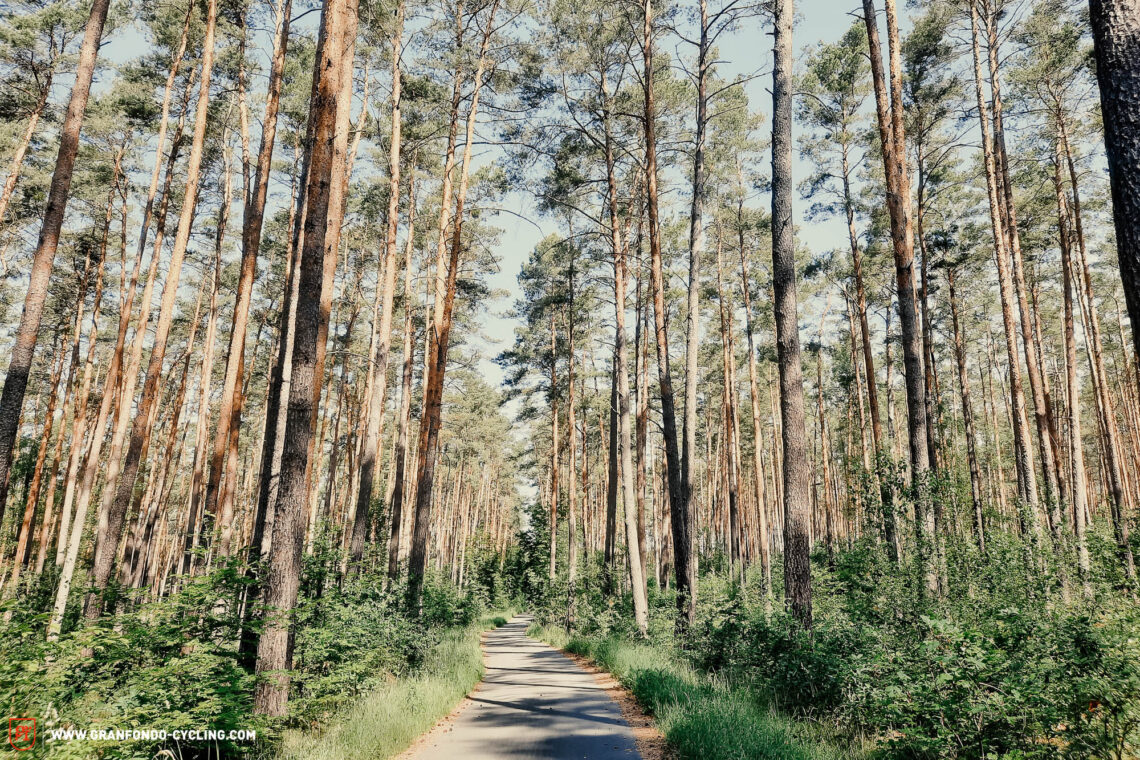
Gravel bikes are in their element here, though a hardtail mountain bike wouldn’t be out of place either. Both will excel and be a lot of fun to ride in this terrain, splashing through the occasional puddle of mud. Some of the panoramas might make you want to stop in disbelief and awe at the scenery before getting back to it. You might also find yourself pushing uphill through the bushes of the dense forest, which is what happens if the beautiful scenery makes you forget to look at your GPS…
While the more competitive folks race against the clock, we’re happy to take short breaks and there are plenty of inviting stops along the way. We make it back to the festival grounds by the early afternoon, where we find the fastest riders already cooling off in the lake or under the outdoor shower. Or enjoying a beer. It’s well deserved after riding through sand like that – with a best time of 5 hours 20 minutes by Niklas Vogel. There were even faster riders, but they weren’t yet officially registered for the gravel series. Some riders seem to be capable of flying over deep sand.
Athletes, live talks and tremors
The relaxation program includes everything from yoga to neurogenic tremors. Yoga needs little introduction. With neurogenic tremors, we learn to shake off tension, fears and stress. It’s only when you’re in balance that you can be both relaxed and efficient. To this end, we’re taught specific holding and movement exercises that bring our muscles, spine and entire body into harmony. The trick is to relinquish control, and indeed, some participants begin to tremble as they release blockages from certain body parts.
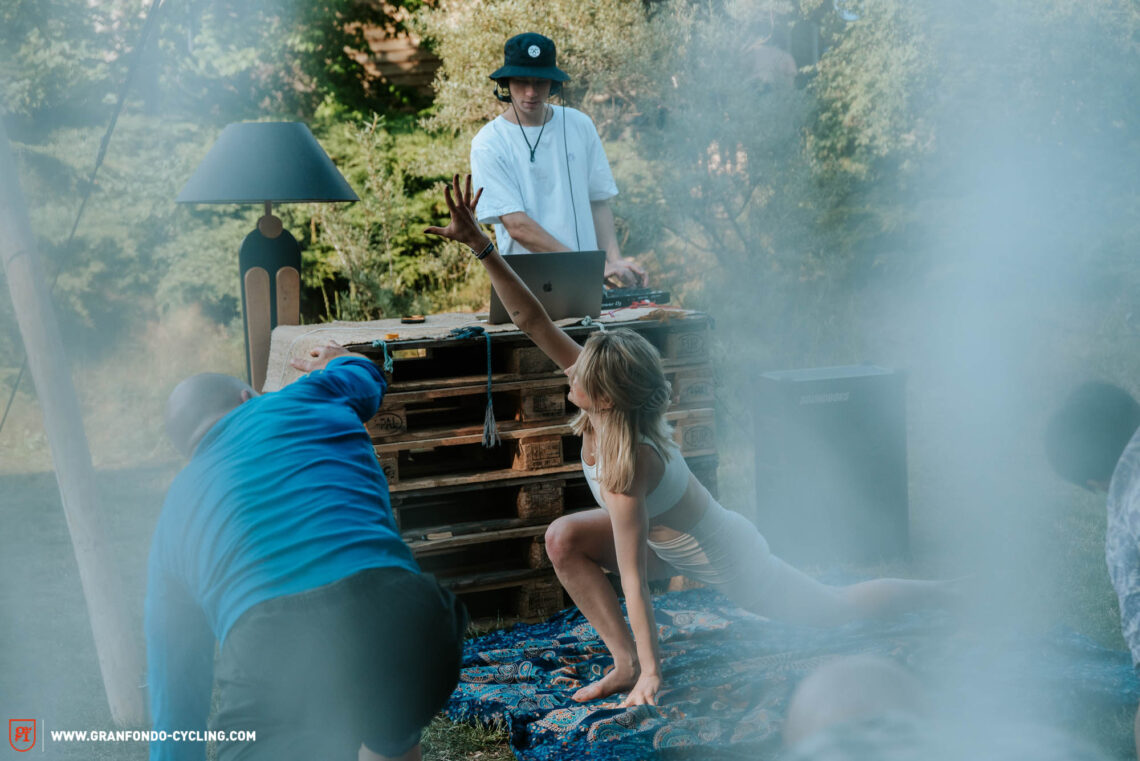
Energy and poise – that’s precisely what we find during live talks by scene greats and inspiring athletes. We listen with excitement to the careers and experiences of Marion Dziwnik, Jan-Philipp Sacher and Jonas Fischer, who all used to ride fixies. Meanwhile, they meet at ultra-races like Badlands, Seven Serpents or the Transcontinental.
We learn that your wattage output isn’t important in ultra-races. It’s your mental strength and self-discipline that makes all the difference. Marion values a good training plan. After all, she rides straight from Stuttgart to the Stelvio Pass – 390 km, 7,260 m of climbing over a total of 3 long Alpine passes – together with members of the VOTEC ENDEAVOR team. The film about it (which we covered here) gets screened the following evening in the open-air cinema. If you’re interested in the team’s VOTEC VRX gravel bike, check out our review of it here.
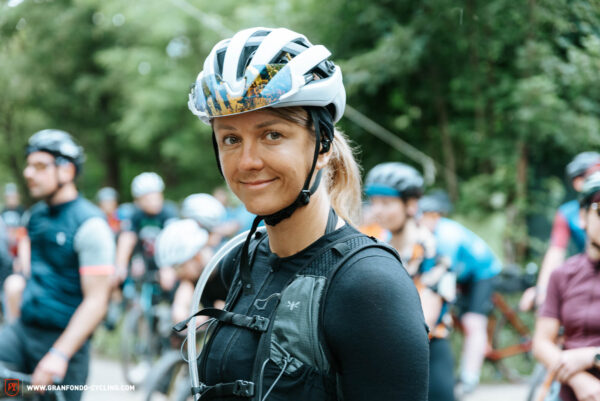
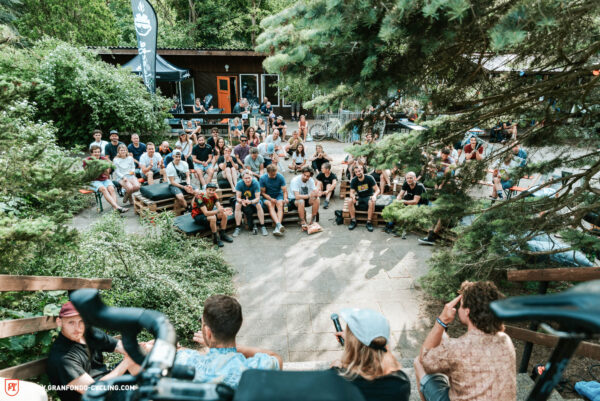
The three talk mainly about values. About fair sport, where experience as such and the coexistence are more important than all-out competition. It’s supposed to be fun first and foremost. Marion, Jan-Philipp and Jonas also emphasise this during their evening talk. Someone in the audience asks if gravel is just another hype and Jan-Philipp turns the question on its head. In his opinion, the term “hype” is mostly used in a derogatory way. However, doesn’t everything change over time, including us? New trends and achievements should simply be enjoyed, accepted and appreciated. “If it’s fun, it’s great!” he explains. “Only if we learn to value it will we be able to maintain the sport and the community.” It’s no wonder he gets a lot of applause for this.
Jana Kesenheimer also emphasises this togetherness in the podcast “Die wundersame Fahrradwelt” (which translates to The Wonderful World of Bicycles, but it’s only available in German) with Johanna Jahnke. Jana was the first woman to finish the 2,760 km long self-supported Three Peaks Bike Race, doing it in 7 days and 20 hours, and placing 5th overall. When she wants to go out for a ride and posts it to her group, she isn’t out to ride any crazy routes but rather looks forward to seeing her friends and having fun together. When she wants to train, she does it alone, she says. The sport simply has a lot of facets. It’s not always about training on her many long rides, sometimes she just needs to clear her head.
After the talks, we watch films to dive even deeper into the athletes’ impressions and feelings: “MAIDEN RACE – Mark Beaumont’s tale of GBDURO” and “Buy a Donkey” about the Rhino Run, a single-stage ultra-endurance race from Plettenberg Bay, South Africa to Windhoek, Namibia. Since the race was cancelled, Max Riese retraced the route together with the South African Rae Trew-Browne and Bas Rotgans from the Netherlands. Max was there to answer our questions after the film.
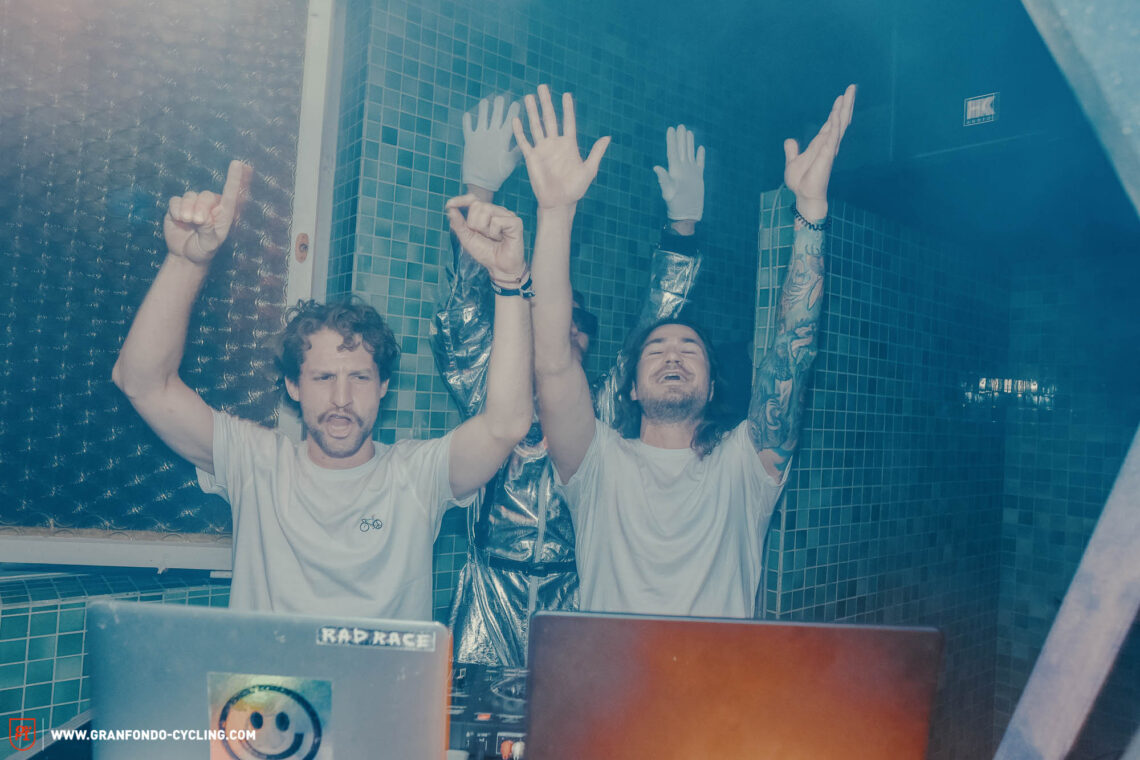
AAll fired up by the talks, we were able to express our enthusiasm at night on the techno dance floor – an absolute highlight. Or let everything sink in comfortably by the campfire until falling asleep. The next day, we were faced with balance competitions on the bike such as “Foot Down” and “Slow Down”. In the latter case, those who took part in the outdoor yoga sessions clearly had the upper hand…
In the outdoors, with authentic people in a relaxed atmosphere, without much luxury and yet with everything your heart desires. You can feel the enthusiasm spill over! Is it hype? No, because no one is making a big fuss about it, spreading propaganda or trying to convince you of anything. It’s about sharing the joy of this sport and seizing every opportunity to ride gravel. So, let’s enjoy the journey and not the destination. And enjoy every second instead of staring doggedly at the clock!
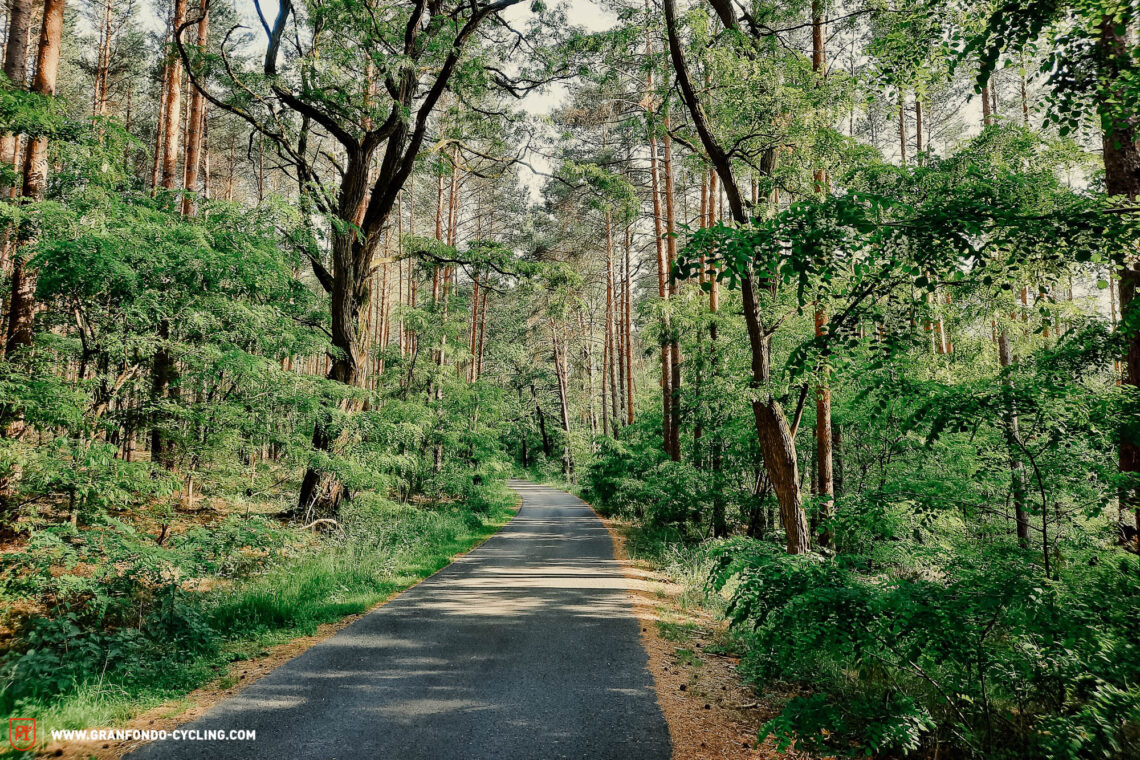
Did you enjoy this article? If so, we would be stoked if you decide to support us with a monthly contribution. By becoming a supporter of GRAN FONDO, you will help secure a sustainable future for high-quality cycling journalism. Click here to learn more.
Words: Simone Giesler Photos: Simone Giesler, Lisa Wassmann, Jacob Kopecky


